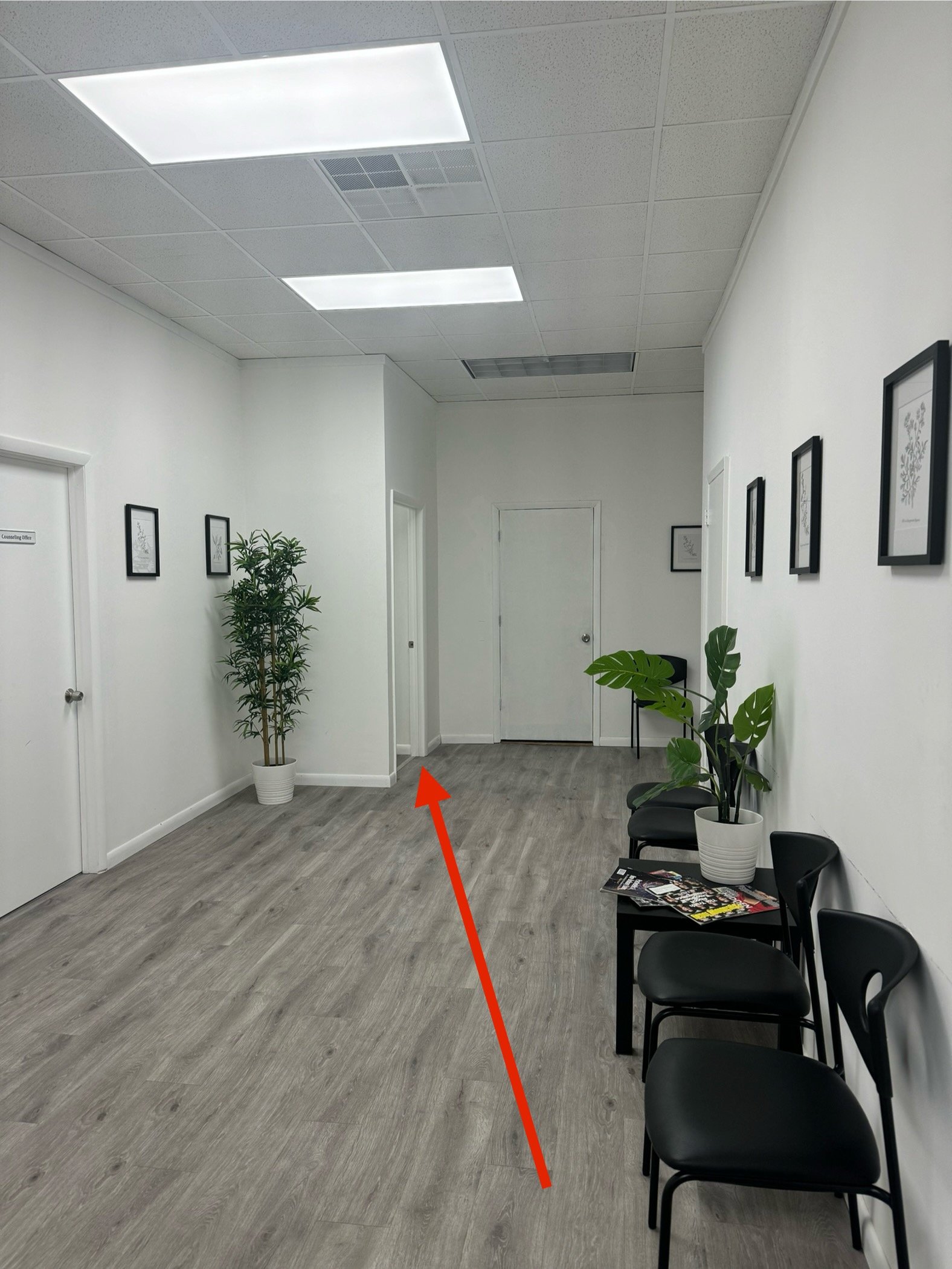
Frequently Asked Questions
-
Sessions cost between $145-$220 depending on the type of therapy you are doing.
-
I accept Aetna commercial plans through Headway.
For all other insurances, you may have out-of-network benefits, which means that insurance will reimburse you for a portion of our session cost.
I also accept Health Saving Accounts (HSA), Flexible Savings Account (FSA), debit card and credit card for payment.
I do not accept Medicare or Medicaid.
-
Insurance does not cover relationship-focused therapy unless there is a diagnosable mental health condition involved. Insurance coverage for premarital counseling, couples therapy, or marriage counseling also vary depending on your specific plan in addition to the diagnosis and the reason for seeking therapy .Because of these variables, I encourage you to reach out directly so we can discuss your situation and determine the best next steps together.
-
The first three sessions we will be identifying strengths, needs and setting goals for treatment. It is during this process that we will discuss recommendation of appropriate treatment option, frequency and service length . It will also give you an opportunity to get a better idea of the therapist’s style of work and build therapeutic relationship.
-
Each client is unique and we make sure to tailor therapy and its frequency to your needs. Frequency of therapy depends on various factors and we use the first three session to get a better idea of what that is for each case. We often recommend weekly session initially as we gain skills and work on reducing symptoms. Therapy is best effective when treatment is consistent.
-
Here's a breakdown:
If your insurance plan offers out-of-network benefits, it means they will cover a portion of the cost when you see a therapist who doesn't have a direct contract with your insurance company.
Unlike in-network providers, who bill your insurance company directly, with out-of-network therapists, you typically pay for the session upfront and then submit a claim to your insurance for reimbursement.
Insurance companies often reimburse a percentage of the therapist's fee, usually after you meet an out-of-network deductible. For example, after you meet a $1,000 deductible, your insurance may reimburse 50-80% of the session cost.
Out-of-network benefits give you the flexibility to choose a therapist based on your needs and preferences, not just those in-network.
If you’re unsure if you have out of network benefits, reach out and I can help verify if you have these benefits!
-
You can use the below CPT code and questions to understand your specific coverage and reimbursement :
CPT 90791: Initial Assessment
CPT 90834 : Individual Therapy, 45 min
CPT 90837: Individual Therapy, 53+ Min
CPT 90847: Couples/Family/Marriage Therapy
Do I have out-of-network mental/behavioral health benefits?
Do I have an out-of-network deductible that has to be met first before I get reimbursed?
Has any amount of my deductible been covered this year?
What is my co-insurance amount?
Co-insurance is the amount you pay after deductible is met. For example, if you have met your out-of-network deductible and you have a co-insurance of 20%-40% of session cost and the cost of session to you is $200, you will be reimbursed between $160- $120 by your insurance company.
What is my allowed amount?
The reimbursement rate is decided by copay/co-insurance and allowed amount; you would be responsible for the co-pay/co-insurance and then anything above the allowed amount that the insurance does not cover.
-
Paying out-of-pocket (self-pay) for therapy can offer several advantages especially when compared to using insurance. There are also practical reasons clients may choose this route.
Greater Privacy and Confidentiality
When you pay privately, your mental health records stay between you and your therapist. Insurance companies often require a formal diagnosis and access to records for reimbursement, which can limit your privacy.No Need for a Mental Health Diagnosis
Insurance typically requires that therapy be deemed "medically necessary," which means a formal mental health diagnosis is required. Out-of-pocket therapy allows you to seek support for personal growth, stress, life transitions, or relationship issues—without needing a diagnosis or proof of medical necessity.More Flexible Session Lengths
Standard insurance-covered sessions are usually limited to 45-50 minutes. Paying privately allows for extended sessions (e.g., 60–90 minutes), which can be more productive and better suited to your needs.Higher Frequency of Sessions
Insurance may limit how often you can be seen. Paying out-of-pocket gives you and your therapist the freedom to meet as often as necessary or more frequently during times of need.Services Not Covered by Insurance
Many valuable therapy services (like couples counseling, pre-marital counseling, coaching, or preventative mental health care) are not covered by most insurance plans. Paying privately gives you access to these services without restriction.Avoiding High Deductibles and Copays
If you have a high deductible plan or high copays, you may be paying close to the full session fee anyway. In such cases, private pay offers more flexibility and control without dealing with insurance paperwork or delays.Out-of-Network Benefits
Many clients still use their insurance by choosing an out-of-network provider. They pay upfront, then submit claims for reimbursement. This often allows them to see the therapist of their choice while still receiving partial coverage.
Reduced Barriers and Wait Times
Paying directly can speed up the process of starting therapy, since clients don’t need to wait for insurance approval or find an in-network provider with availability. Many highly trained or in-demand therapists don’t accept insurance. Paying out of pocket opens the door to specialists with niche expertise, unique modalities, or extensive experience.
-
A superbill is a detailed receipt I can provide for clients who are paying out-of-pocket and plan to use their out-of-network insurance benefits. It includes all the information your insurance company needs to request out-of-network reimbursement.
You can submit these superbills directly to your insurance to request partial reimbursement from your insurance provider of what you paid. Reimbursement depends entirely on your plan’s out-of-network coverage.
If you're not planning to use out-of-network benefits, a superbill is not needed.
As a courtesy, I offer free out-of-network claim submission whenever you’d like me to take care of it.
-
While we do have sliding scale/reduced fee, there are only a few slots made available at a time. We make our best effort to have equitable care by offering sliding scale to those most in need whether that is being financially limited or those who cannot afford care. Therefore, we consider sliding scale on a case-by-case basis to make care accessible. The therapist will determine, at their discretion, whether to apply a sliding scale for fees based on factors such as gross income and plan of service. We must be selective to circumstances as we truly would like to open up those slots to those that could use assistance.
Please reach out if this would be helpful to you!
-
Free two hour street parking Monday-Friday 8 am- 6 pm is available on Greenwood Avenue, a minute walk to our office. This is in between Glen Ridge Taekwon-do school and Union Gardens apartment building in Montclair, New Jersey
Metered parking is found directly across our office building, Zone 404 parking plaza lettered K. The Flowbird pay by plate kiosk station accept coins and credit card. You can also use ParkMobile app. Metered parking is free after 7 pm.
-
18-20 Lackawanna Plaza is next to Santokh Yoga and Wellness Center and nearby Minias Breakfast and Lunch Montclair.
-
The building’s main entrance at 18-20 Lackawanna Plaza Montclair New Jersey is open to the public.
To get to the suite 200 waiting room you can follow the instruction below or refer to visual photos towards the end of this page.
Instructions:
Upon entering the building, head up the stairs.
Immediately to your right, you’ll find a glass door that will allow you up to the second and third floor. This door may be locked.
Please text us, and we will buzz it open. It will light green to signal open access.
You can now enter. Suite 200 is immediately right up the stairs after entering through the secure entrance.
How to find us.
Our in person therapy practice is located in the heart of montclair at:
18-20 Lackawanna Plaza Suite 200
Montclair, NJ 07866
Below are some visual references to help you find us.








